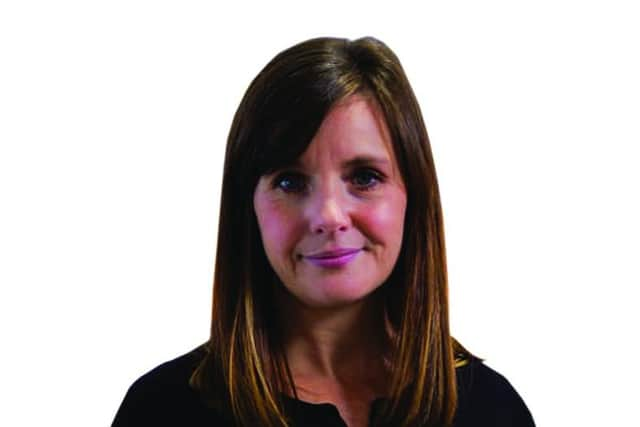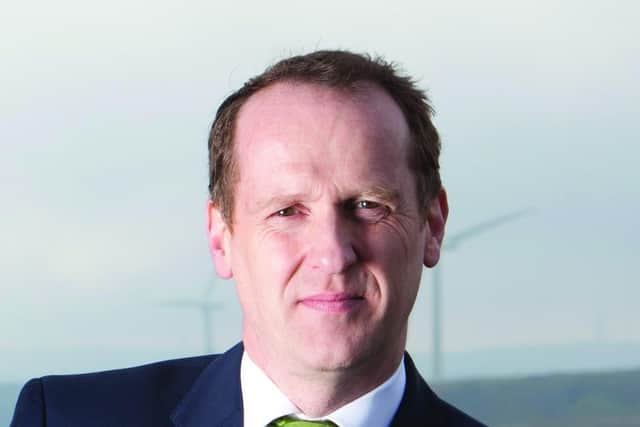Green Skills Conference: Expert voices from the event
Jenny MacDonald, Skills planning manager for oil and gas, Skills Development Scotland
Industry leadership, clear communication on skills transferability, and government support to drive a green economy were key themes of The Scotsman’s Green Skills conference.
Advertisement
Hide AdAdvertisement
Hide AdFor many of us, this was the first event in a long time to offer the chance to get together in person and dive deeply into the challenges we all face and share the successes seen in Scotland. The energy was palpable – it was great to witness.


Scotland’s move to net-zero is creating new jobs and changing others. To make sure everyone living, working and learning here has the chance to benefit, we have to continue to improve our understanding of what skills will be needed, where and when.
That’s why the steering group behind the Climate Emergency Skills Action Plan have joined with the universities of Warwick and Strathclyde to agree how to measure green jobs in Scotland.
The group is made up of more than 20 organisations – spanning public sector, employers and education – including Skills Development Scotland and the Scottish Government.
The research will be unique to Scotland and, for the first time, will mean that people making key decisions to support green skills can use the data to better meet demand, as well as address inequalities, such as getting more women into energy, engineering and tech.


It will also drive understanding and action to support reskilling and upskilling, making sure the workforce of today feels included and ready to take up the opportunities created by the greener jobs of tomorrow.
One of the highlights of the day was the discussion by the all-female energy panel, who not only made very pertinent points about diversity, but also posed some interesting questions.
For example, do people know enough about how we can improve on and transfer our existing skills to make our roles greener? Will there be a time when we no longer even need the term “green skills”, as it will be part of every job?
Advertisement
Hide AdAdvertisement
Hide AdWhatever the answers, there is no doubt we will all need to be more climate-aware in the workplace. As one speaker said, we can’t expect everyone to become fully-qualified environmental scientists, but by making sure we’re all aware net-zero is vital, it will help inspire people to develop the right skills at the right level for them.


This, in turn, will help us all work together to take advantage of the real opportunities offered by this “green revolution”.
The target for Scotland to be net-zero by 2045 sets the bar high, but through collaboration, innovation and skills support, we can do it for the benefit of society and the economy.
Kirsty Summers, Head of workforce and skills, Scotch Whisky Association
Green skills are your skills. Everyone has a part to play and everyone’s jobs are included.


If there are challenges around this, I think employers must consider how to bring their whole workforce with them. Awareness and sustainability should be at the heart of everything our colleagues do. I truly believe that skills acquisition is one of the primary routes to an organisation with thriving diversity of thought, and with the potential to significantly affect our state of inclusivity. But we often disregard the skills we already have – the people we already have – somehow believing we always need something new. But with green skills, we have the opportunity to develop and foster our people.
Consider your “ageing workforce”. I would like to reframe this concept as one of an employer’s biggest benefits. I believe the existing skills and knowledge we have in our organisations holds the key to the application of green skills. Encourage this group to share their skills with the verve and enthusiasm of entry and early-career level people. Inclusivity and collaboration are key.
Collaboration is one of the Scotch Whisky Association’s values. Most organisations have values, and if we were to underpin them with the concept of green skills, the collaboration would mean the greatest risk is not fostering our green skills.
Advertisement
Hide AdAdvertisement
Hide AdBrave souls will be needed to lead the way, but I know we can do it.
Keith Anderson,Chief executive, ScottishPower
If you’re looking for a new job, or thinking about it, the phrase “green jobs” may be familiar. But does it constitute and how do you get one? The simple answer is every single role in the business I run – and we’re looking to fill 1,000 of them.
ScottishPower is launching our biggest-ever recruitment drive to help deliver our multi-billion-pound plans to build new wind, solar and electricity network infrastructure for Scotland and across the UK.
But what’s even better news for job hunters and wider society is that we are not the only energy company investing in its workforce and creating green jobs in this country.
Which brings me back to what constitutes a green job. The analogy of the NASA janitor responding to a question about his job by saying he helped put a man on the moon is just as relevant for the energy sector.
As a 100-per cent green generation business, everyone in my company is already playing a key role in helping tackle climate change and deliver net-zero. There is a wealth of opportunity in the sector for new entrants and those making a career switch.
And it’s not just for people to work on our wind farms or electricity networks, but the IT specialists who manage the systems, the procurement teams that get our supply chains on board, and the ecologists that work with the communities we serve.
Everyone can play a part in delivering a cleaner, greener world and we know people are our biggest asset. Come join us, we can’t do it without you.